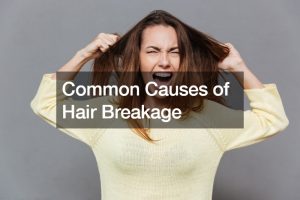Many Native American tribes had their artists craft totem poles decorated with symbols that were meaningful to them. The presence of a bear would represent strength, the horse could signify freedom and mobility, the eagle perhaps a symbol of divine connection or guidance.
Our affinity for specific creatures persists today, and we might wear animal rings or collect items bearing their likeness. Often, this stems from an admiration of certain qualities, a feeling of kinship, and ultimately, a desire to express our identity.
But the Native American totem also had a storytelling function. Its carvings not only stood for significant tribal attributes but spoke of tribal life and history, as well as individual standing.
None of the North American tribes had developed a system of writing at the time of European contact. Yet they understood the social and psychological power of narratives and devoted considerable efforts towards making totems.
Are you making a similar investment in your well-being through the stories you tell?
The function of storytelling
Storytelling is universal. Before the first written systems were devised, people worldwide found ways to share stories, not only among themselves but also handed down across generations.
Cave paintings dated approximately 30,000 years ago could have visually preserved specific events or facilitated oral storytelling. The epic of Gilgamesh, the Iliad, and the Mahabharata are some of the oldest known stories and were all transmitted verbally before they could be written down.
The independent invention of writing probably came about due to organizational pressures. In Mesopotamia, a burgeoning bureaucracy used cuneiform to record commercial transactions. In China, diviners needed to record their interpretations of the oracle bones.
But storytelling, which predates writing itself, may be closely intertwined with the very evolution of human linguistic capabilities. After all, a species whose members can memorably communicate information is more likely to empathize, cooperate, and survive.
A tool for everyone
Telling stories thus serves a vital function to our species. And though we now associate this activity mostly with writers across media, from books and film scripts to blogs and social media posts, it’s hardly exclusive to the written domain.
Professional writers may serve up our favorite stories, and they certainly gain the most visibility in terms of cultural exposure. But in truth, everyone is constantly engaged in this endeavor. We’re all in the process of shaping and reframing our personal narratives.
Our lives are full of experiences and sensory stimuli. In one mundane day, the things we see, hear, smell, taste, and touch represent far more information than we’ll ever remember. That’s because our brains are wired to retain only what’s perceived as important, suppressing the rest.

And on a broader level, even the highlight reel of daily episodes will be forgotten if it’s not deemed meaningful. The narrative is our tool for creating that sense of meaning.
Maybe you don’t tell your story with the same structure or coherence as a movie or novel. That doesn’t matter, as long as it helps you make sense of your life’s experiences. Your narrative is a story that’s forever being drafted, and by constantly revisiting and rehearsing it, you can glean new insights and reinforce important connections.
Using narrative for well-being
Since it’s your own story, and the narrative is a universal tool for improving cognitive processes, it’s tempting to infer that there’s no right or wrong approach to such storytelling.
However, just as a well-crafted story can leave you feeling upbeat or downcast depending on the writer’s intention, personal narratives can also take on a definite shape. And the implications for your well-being are profound.
When harnessed properly, studies have shown that narratives can be a powerful tool for survivors of domestic violence or displacement to address their trauma effectively.
Yet at the same time, people who’ve gone through traumatic experiences can also be weighed down by their personal narratives. They could get stuck in a negative loop that reinforces their identity as victims without a redemptive arc.
The secret to making your own story empower your well-being lies in discovering agency and communion.
The former implies realizing that you have a measure of control over the events in your life. Agency isn’t absolute, but reflecting on your narrative can help you figure out what you can do to make a difference, dispelling feelings of helplessness and anxiety.
Communion, on the other hand, helps you make sense of the relationships in your life positively. That doesn’t mean you invent good relationships or inject positivity when there’s none. But you can rediscover empathy and see the roles we play in shaping each other’s lives.
Keep on reworking your story into a form that incorporates these two attributes. Even without being a professional storyteller, you’ll make sense of life in a way that boosts well-being.



